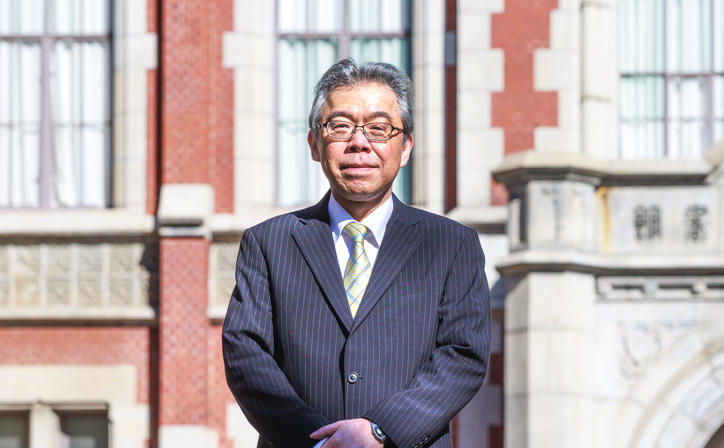Message from the DeanEmbracing the Good Qualities of Humanities Research TogetherProf. Noriyuki Harada
Dean, Graduate School of Letters

Keio University's Graduate School of Letters offers master's and doctoral programs across 9 majors and 16 specializations—Philosophy, Ethics, Aesthetics and Science of Arts, Art Management (master’s program only), Japanese History, Asian History, Western History, Archeology and Ethnology, Japanese Literature, Japanese Language Education (master’s program only), Chinese Literature, English and American Literature, German Literature, French Literature, Library and Information Science, and Information Resource Management (master’s program only)—as well as an interdisciplinary course in Western Medieval Studies. More than 200 graduate students pursue their studies here each day, fostering a dynamic academic community. The school is widely recognized both in Japan and internationally as a leading institution that embraces the diversity of the humanities while cultivating deep expertise in each field.
The humanities have long evolved in parallel with the progress of human society. As times change, societies develop, and values shift, the ability to understand the complexities of human existence—in as concrete and holistic terms as possible—is what makes the humanities not only compelling and essential but also vital to shaping modern society. Without a nuanced and multifaceted understanding of the human condition, we lack the clarity to navigate the path forward. Such understanding cannot be derived from fleeting trends or passing public sentiment. By bridging past and present, envisioning the future, and exploring the essence of diverse cultures, humanities research continues to illuminate the modern world with invaluable insights.
The Graduate School of Letters at Keio University provides an ideal environment for academic inquiry, with extensive programs, facilities, and research frameworks that support the exploration of the humanities. Most classes are conducted in small-group seminar settings led by distinguished scholars, allowing students to develop advanced expertise in their chosen fields. Supervision for master's theses and doctoral dissertations is conducted systematically under the guidance of academic advisors, with approximately 60 students earning their master's or doctoral degrees each year upon completing rigorous research. Students have access to dual-degree programs with other graduate schools at Keio. They also have the opportunity to engage in interdisciplinary research through collaborations with various institutes based on the Mita Campus, including the Keio Institute of Cultural and Linguistic Studies, Keio Institute of Oriental Classics (Shidō Bunko), the Fukuzawa Memorial Center for Modern Japanese Studies, the Keio University Art Center (KUAC), the Center for Japanese Studies, and the Museum Commons. We strongly encourage students to take full advantage of the Keio University Media Center, one of Japan’s most prestigious academic libraries, which houses an extensive collection of rare Japanese, Chinese, and Western books, as well as a wealth of databases providing access to the latest research findings. Another key advantage of studying at the Graduate School of Letters is the extensive financial support available, including a broad range of scholarships and research grants to help students pursue their academic ambitions. We actively encourage students to study at universities abroad and present their research at international conferences. Each year, many students gain valuable overseas experience through a comprehensive array of funding programs for travel, study, and research. Additionally, Keio University offers a variety of other unique support programs that we urge students to explore.
Since its founding, Keio University has upheld the tradition of hangaku-hankyo—“learning while teaching, teaching while learning.” At the graduate level, students are not only learners but also equal contributors who study alongside faculty, engage in peer-to-peer education, and make meaningful contributions to academic research as scholars and educators. I sincerely hope that, together with many aspiring researchers, we can continue to advance humanities education and research here at the Graduate School of Letters, ensuring its lasting impact for the future.


